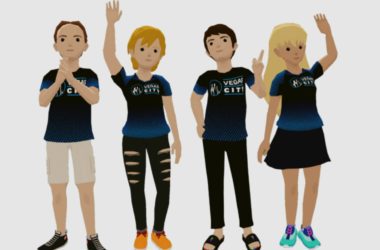Quick take:
- The Personal Boundary feature prevents anyone from invading users’ personal space.
- Users will feel like there is an almost 4-foot distance between their avatar and others.
- The feature will be always on by default.
Meta has added a new Personal Boundary feature to avatars on the company’s virtual reality platforms Horizon Worlds and Horizon Venues.
This comes after the company made headlines after a beta user on Horizon Worlds recounted being sexually harassed in the metaverse in December.
According to the user, “this isn’t the first time, I’m sure it won’t be the last time that someone has sexually harassed me in virtual reality. Sexual harassment is no joke on the regular Internet but being in VR adds another layer that makes the event more intense. Not only was I groped last night, but there were other people there who supported this behavior which made me feel isolated in the Plaza.”
Meta responded to the incident by saying that the victim didn’t fully utilise the available safety features like the ‘safe zone’, a protective bubble that users can turn on when feeling threatened, and the block feature, which the victim did use. This response drew public criticism of victim-blaming by Meta.
The user also requested a “personal bubble that will force people away” from their avatar, and that seems to be what Meta’s Personal Boundary does. The feature creates an invisible virtual barrier that halts the forward movement of avatars that try to invade a user’s personal space.
Inside the invisible barrier, users will feel like there is an almost 4-foot distance between their avatar and others. To help set behavioural norms, the Personal Boundary is always on by default and cannot be disabled. However, users can still extend their arms to high-five or fist-bump other avatars in Horizon Worlds and Horizon Venues.
Meta is also looking at possibilities of adding new controls, such as letting users customise the size of their Personal Boundary in the future.
The groping incident in Horizon Worlds is not the first to happen in virtual reality. In 2016, a gamer described being groped in virtual reality zombie-shooting game, Quivr. The game has since implemented custom gestures that let users push an avatar away from them.
Stay up to date:





